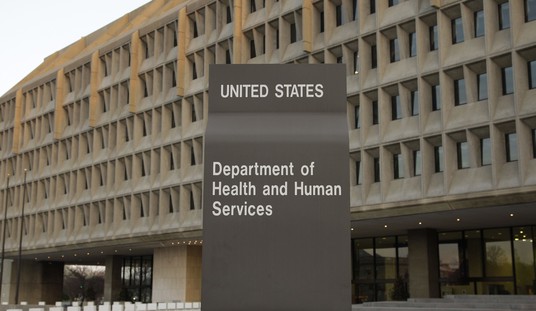Democrats in the House have put the finishing touches on their health-care reform plan, announcing that they’ve reached agreement on funding the trillions of dollars it will cost the US over the next decade. Once again, the Democrats have gone to the class-warfare strategy, adding a “surcharge” tax assessment for individuals making over $250,000 to pay for the overhaul, emphasis mine:
House Ways and Means Committee members are likely to propose a surtax on high-income Americans to help pay for an overhaul of the health-care system, according to people familiar with the plan.
The tax would be similar to, yet much smaller than, a surtax proposed in 2007 by Ways and Means Committee Chairman Charles Rangel, a person familiar with the committee’s talks said. That plan would have added at least a 4 percent levy on incomes exceeding $200,000, and was projected to reap as much as $832 billion over 10 years.
Two people familiar with closed-door talks by committee Democrats said a House bill probably will include a surtax on incomes exceeding $250,000, as Congress seeks ways to pay for changes to a health-care system that accounts for almost 18 percent of the U.S. economy. By targeting wealthier Americans, a surtax may hold more appeal for House Democrats than a Senate proposal to tax some employer-provided health benefits.
“The surtax is obviously more attractive to Democrats in the House because it’s more progressive, which they find attractive in and of itself,” said Paul Van de Water, a senior fellow at the Washington-based Center on Budget and Policy Priorities, a research group focused on policies affecting low- and moderate-income families.
No doubt that it’s more attractive. Democrats won the last election demonizing the “rich”, a term with fluctuating definitions during the campaign. At one point, Obama defined it as anything above $75,000, which he later abandoned for obvious political reasons. Ever since then, the Democrats have latched onto the $250,000 figure, not because of any particular egregiousness about that specific income level but because that gives them the widest possible base for surtaxes while preserving enough voters to keep them in office.
The real motivation here is to have an excuse to hike taxes on the rich, not necessarily to fully fund ObamaCare, which this won’t do anyway. Rangel and his allies will use static analysis to determine the revenue flow over the next ten years, but will not account for the impact higher taxes will have on income levels. Obama had the better idea, at least politically speaking, by removing tax deductions while leaving tax rates alone. People will simply find better ways to lower their tax profile, and the amount of income received from this plan will not keep up with estimates — meaning that it will produce wider and wider deficits as it progresses, even if the cost savings promised to fund part of it actually appear, which is highly unlikely.
Raising taxes in a recession has another impact as well; it keeps capital out of the market, where it works to create growth and jobs. The very people we need funding new ventures and expanding successful existing ones will have their capital taken from them to be used by the least efficient of all entities, the federal government. Porkulus has already proven how ineffective big government spending is at creating growth and jobs. This takes the Porkulus approach to health care, and it will have even worse results for both care and the economy.








Join the conversation as a VIP Member